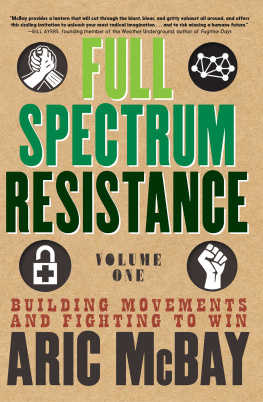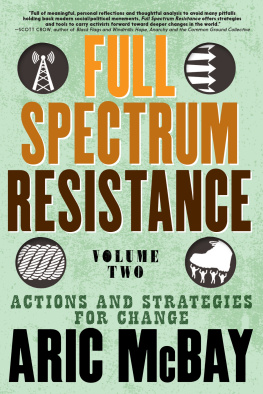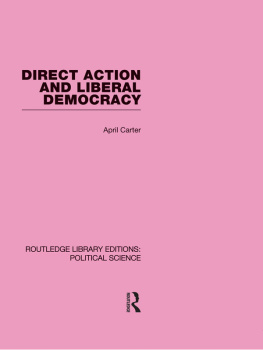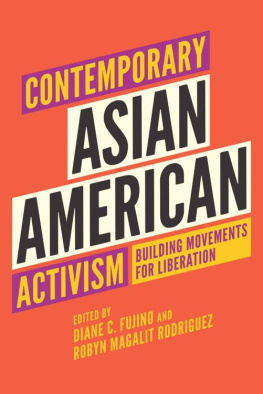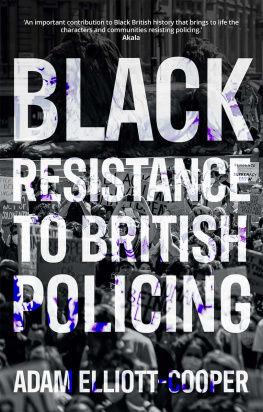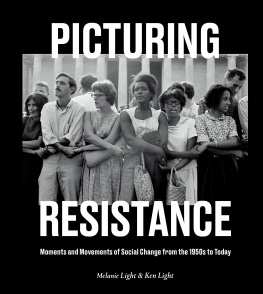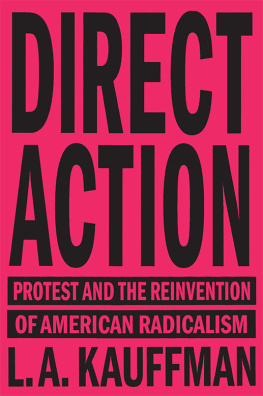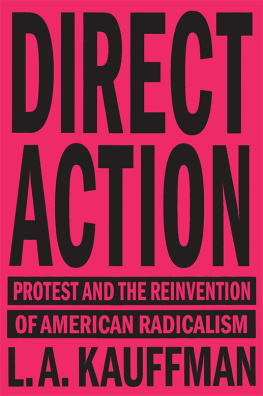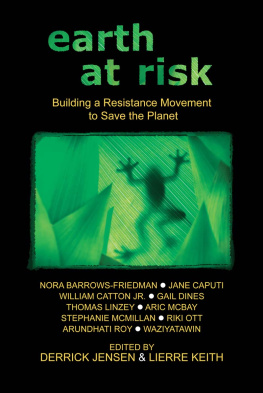Copyright 2019 by Aric McBay
All rights reserved. No part of this book may be reproduced, stored in a retrieval system, or transmitted in any form or by any means, including mechanical, electronic, photocopying, recording, or otherwise, without the prior written permission of the publisher.
Seven Stories Press
140 Watts Street
New York, NY 10013
sevenstories.com
Library of Congress Cataloging-in-Publication Data
Names: McBay, Aric, author.
Title: Full spectrum resistance / Aric McBay.
Description: New York : Seven Stories Press, [2019] Contents: Volume 1. Building movements and fighting to win -- Volume 2. Actions and strategies for change.
Identifiers: LCCN 2018057202| ISBN 9781609809119 (vol. 1 : pbk.) | ISBN 9781609809287 (vol. 2 : pbk.) | ISBN 9781609809126 (vol. 1 : ebook) | ISBN 9781609809294 (vol. 2 : ebook)
Subjects: LCSH: Social movements--History. | Social movements--Case studies. | Government, Resistance to--History. | Political activists--History. | Social change--History. | Social justice--History. | Environmentalism--History.
Classification: LCC HM881 .M433 2019 | DDC 303.48/4--dc23
LC record available at https://lccn.loc.gov/2018057202
Printed in the United States of America
9 8 7 6 5 4 3 2 1
To those who struggle; with solidarity and gratitude.
Contents
Volume One: Building Movements and Fighting to Win
SIDEBARS
FIGURES AND ILLUSTRATIONS
CHAPTER 1
Why We Fight
I know the one thing we did right / was the day we started to fight.
Keep Your Eyes on the Prize, civil rights anthem
We are never assured of justice without a fight.
Angela Davis
i wrote this book because we are losing . The global exploitation of the poor is accelerating even as the richer grow wealthier than at any point in history. The fertile planet that keeps us all alive is being poisoned, baked, and stripped bare. Remaining Indigenous and traditional people continue to be attacked and pushed off their lands so that the rich can exploit resources that will be exhausted in a few decades anyway. We are losing and we need to learn how to win, fast.
Ive been a social and ecological justice activist for two decades. In that time, Ive worked on waste reduction and recycling projects, organized with anti-poverty community groups, and marched (or sat in jail) at summit protests. Ive helped start a community garden and organic farming operations. Ive written four books, and given speeches to both academics and angry crowds. Ive been a union organizer and a farm organizer. Ive worked with militant conservation groups using direct confrontation and civil disobedience. Ive developed a broad perspective on political action that comes from using many different tactics in many different campaigns.
But the truth is that in almost every campaign I have worked on in my life, we have lost ground. In ecological campaigns like forest defense, thats been literally true. In anti-poverty campaigns, its reflected in the ever-growing gap between rich and poor. This is not only my experience, but the experience of many activists working on many different issues. In areas where I do feel like progress has been madesay, queer rightsthere is a constant threat of backlash and backsliding. The gains we have won rest on a temporary and unstable foundation; we cannot expect to win long-term human rights from a society that is based on flagrant ecological unsustainability.
If we want to reverse this tide of losses, we must speak honestly to each other about the situation we are in, and about its severity. We must speak about why we have been losing and what that means for the future.
This book is about what makes for effective action. It is about how to organize effective resistance movements. If we want to make social change and defend a habitable biosphere, we must unflinchingly examine those tendencies (especially those on the left) that have made us ineffective. I will dissect some of these pernicious predispositions in the pages to come.
Some of these barriers to action are misconceptions about how power works in society. The left in general has been nave about the effectiveness of moral suasion. Too many people have clung to the faith in government that good citizens are supposed to have. We often work under the assumption that those in power will be convinced to stop their atrocities if we offer them a good example or a well-reasoned argument.
Historically, this is nearly unheard of.
The unfortunate reality is that most people in powerwhether in political office or a corporate boardroombenefit greatly from their status and have been trained not to question the power structures that put them there. Further, when we try to make social change we rarely deal with thinking and compassionate individuals who can be persuaded by moral example. We deal with large, abstract social machines: corporations and corporate-structured governments. You cant persuade a machine. In the social machine of the profitable corporation, the anomalously compassionate individual is merely a defective component to be replaced by the bosses or shareholders.
We have failed to think and act strategically. Weve based so many of our campaigns on the idea that those in power will stop exploiting people and destroying the planet if only they can be educated out of a few minor mistakes. This is a comforting myth for those who might otherwise feel powerless. But it is a myth we cannot afford to cling to any longer. By allowing those in power to determine the agenda and the timetable for change we have given up the initiative, and we have failed to develop appropriate strategy ourselves.
We need resistance movements. If we want to become effective at combating runaway climate change and countless other injustices, thinking people on the left must stop acting like the loyal opposition and start acting like a real resistance force. We have to learn from the strategies and resistance movements of the past.
I began my activist career as a young liberal environmentalist. I was the founding president of my environment club in elementary school. I gave speeches about saving the whales. I wrote and acted in a play about the dangers of environmental destruction, in which a selfish CEO was sent to the future to face the consequences of his acts. Our group set up composters, sold reusable Tupperware lunch kits so that people could reduce their waste, and raised money to adopt acres of the Amazon rainforest.
I knew these were small gestures, but as a young person I believed that if we could just convince and educate enough people we would turn things around.
When I was in high school, our environmental club ran a bottle-and-can-recycling program. There wasnt a proper municipal recycling program in place yet, so we had to sort and wash the bottles ourselves and arrange for their pick up. Other studentsignoring our polite signs and pleas to be neatwould dump half-full pop bottles and garbage into our clearly marked recycling bins. Friday night after school was the time to organize and wash the weeks bottles and cans. We would hose off the bins as we picked out plastic straws and soggy napkins. The spray generated a fine aerosol mist, a dilute fog of high-fructose corn syrup. I remember the way it stuck to my skin, how it beaded on my forearms like sugary dew. We didnt carewe did it for the planet.

